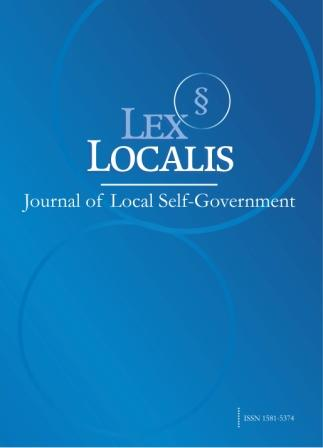The Relationship Between Tourists' Emotions and Revisit Intention: A Case Study of Beijing Shichahai with Policy Insights
DOI:
https://doi.org/10.52152/3168Keywords:
tourist emotion; Beijing Shichahai; M-R theoretical model; revisit intention; path coefficientAbstract
The purpose of this paper is to promote tourists' revisit intention by improving their emotions, taking Beijing Shichahai area as an example to study tourists' revisit intention in this area. First, we propose the M-R theoretical model, which stimulates tourists' emotions through environmental stimuli, perception of authenticity, and perception of risk to promote revisiting intention. Then three hypotheses on the relationship between tourist emotion, risk perception and original authenticity perception and revisit intention are proposed, and tourist emotion is divided into four factors, namely resource and service value, emotional value, social value and knowledge value, to verify the hypotheses of this paper. The analysis shows that in the H1 hypothesis, the P-value of the four public factors is less than 0.05, and the research hypothesis H1 is established. In H2 hypothesis, the role of residents' unregulated behavior, tourists' emotion, and risk perception all affect the willingness to revisit significantly P<0.001, and research hypothesis H2 is established. Architecture original authenticity perception, cultural symbols original authenticity perception significantly and positively affects the intention to revisit, standardized path coefficient and P-value of 0.177, P<0.001, 0.154, P<0.001, respectively, tourists' perception of the original authenticity of the ancient city revisit intention, the research hypothesis H3 is established.
References
Gregoriades, A., Pampaka, M., Herodotou, H., & Christodoulou, E. (2023). Explaining tourist revisit intention using natural language processing and classification techniques. Journal of Big Data, 10(1), 60.
Rini, E. S., Absah, Y., Sembiring, B. K. F., & Nasution, M. D. T. P. (2021). Intention to revisit tourist destinations in Indonesia. Innovative Marketing, 17(4), 37.
Mehra, P. (2023). Unexpected surprise: Emotion analysis and aspect based sentiment analysis (ABSA) of user generated comments to study behavioral intentions of tourists. Tourism Management Perspectives, 45, 101063.
Chen, X., Cheng, Z. F., & Kim, G. B. (2020). Make it memorable: Tourism experience, fun, recommendation and revisit intentions of Chinese outbound tourists. Sustainability, 12(5), 1904.
An, S., Jiang, L., Woosnam, K. M., & Eck, T. (2022). Volunteer tourists' revisit intentions explained through emotional solidarity and on-site experience. Journal of Hospitality and Tourism Management, 53, 70-80.
Kou, Y., & Xue, X. (2024). The influence of rural tourism landscape perception on tourists’ revisit intentions—a case study in Nangou village, China. Humanities and Social Sciences Communications, 11(1), 1-14.
Hu, Y., & Xu, S. (2023). Repeat tourists’ perceived unfavorable changes and their effects on destination loyalty. Tourism Review, 78(1), 42-57.
Tiwari, A. V., Bajpai, N., & Pandey, P. (2024). The measurement model of novelty, memorable tourism experience and revisit intention in tourists. Leisure/Loisir, 48(1), 103-121.
Zhou, G., Liu, Y., Chen, W., & Yang, Q. (2020). Relationship between triggers of nostalgia and revisit intention in rural tourism. Revista Argentina de Clínica Psicológica, 29(1), 536.
Rajendran, R. P., & Arun, C. J. (2021). The effect of sport nostalgia on discrete positive emotions, positive eWOM, and revisit intention of sport tourists: a conceptual framework. International Journal of Business & Economics (IJBE), 6(2), 232-248.
Jin, Z. H. A. N. G. (2020). Features and Evolution of Historical Public Water System Landscape of Shichahai in Beijing From a Holistic Perspective. Journal of Landscape Research, 12(2).
Zhao, Z., Shi, D., Huang, Z., & Liu, X. (2023). How does tourism memory affect revisit decisions? The mediating role of episodic future thinking. Tourism Management Perspectives, 49, 101199.
Zeng, L., & Yi Man Li, R. (2021). Tourist satisfaction, willingness to revisit and recommend, and mountain kangyang tourism spots sustainability: A structural equation modelling approach. Sustainability, 13(19), 10620.
Bowal, S., & Ghosh, P. (2023). The influence of dark tourism motivational factors on revisit intention: a moderated mediation approach. International Journal of Tourism Cities, 9(4), 1046-1062.
Qian, W., Halidin, I., & Anuar, F. I. (2023). The Influence of Smart Tourism Technologies (STTs) Attributes on Domestic Tourists’ Travel Satisfaction and Revisit Intention: Evidence from Bali. Journal of Academic Research in Business & Social Sciences, 13(5), 492-508.
Mursid, A., & Anoraga, P. (2022). Halal destination attributes and revisits intention: the role of destination attractiveness and perceived value. International Journal of Tourism Cities, 8(2), 513-528.
Borrajo-Millán, F., Alonso-Almeida, M. D. M., Escat-Cortes, M., & Yi, L. (2021). Sentiment analysis to measure quality and build sustainability in tourism destinations. Sustainability, 13(11), 6015.
Cheung, M. L., Ting, H., Cheah, J. H., & Sharipudin, M. N. S. (2021). Examining the role of social media-based destination brand community in evoking tourists’ emotions and intention to co-create and visit. Journal of Product & Brand Management, 30(1), 28-43.
Yusof, M. F. M., Kamarudin, L. M., Patwary, A. K., & Mohamed, A. E. (2021). Measuring revisit intention of domestic tourists in Langkawi UNESCO Global Geopark, Malaysia: a road to sustainable tourism. Journal of Environmental Management and Tourism, 12(4), 1052-1063.
Mursid, A. (2023). Examining revisit intention from the basic foundation of Islam: the role of halal destination attributes and perceived value. Journal of Islamic Marketing, 14(5), 1325-1345.
Yamagishi, K., de Ocampo, M., & Ocampo, L. (2023). Revisit intention of tourists in farm tourism sites. Current Issues in Tourism, 1-28.
Downloads
Published
Issue
Section
License
Copyright (c) 2025 Lex localis - Journal of Local Self-Government

This work is licensed under a Creative Commons Attribution-NonCommercial-NoDerivatives 4.0 International License.








